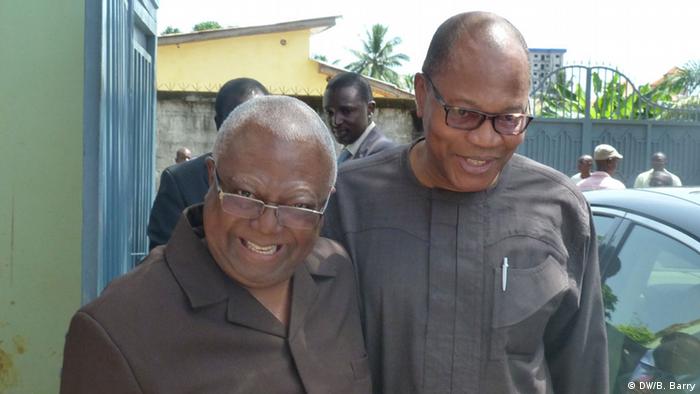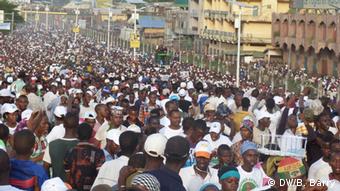Guineans went to the polls elect the next president. International observers and anti-riot police watched over the polling stations. Eight candidates including the incumbent president Alpha Conde are in the race.
It is the second time the West African country is holding democratic presidential elections since independence in 1958. But on Saturday just a day prior to the elections, clashes broke out in several areas of the capital Conakry. Some members of the ruling party Rally of the Guinean People and opposition parties clashed. President Alpha Conde, who is tipped to win a second term, led appeals for calm. DW’s Isaac Mugabi spoke to Paul Melly, Associate Fellow, Africa Programme at Chatham House.
DW: Why does Guinea have a history of violence when it comes to election time?
Paull Melly: I think it is because, for more than thirty years the country was a dictatorship. People could not really have political choices. So when there was political movement, opposition protests usually took the form of street demonstrations that were very seriously repressed by the military often using live gunfire. The crowd would react back against that with quite strong protest, stone throwing and so on. That culture became really quite engraved for a very long time. It is only over the last five years that Guinea has had a genuinely functioning plural political system. Still in the urban areas, the youth of the main party have not completely adapted the notion that politics can be about choice and that when they are in power, they don’t have everything and when they are in opposition they have a share of influence. That culture of compromise hasn’t yet fully developed. It really lies in the very deep long history of more than five decades of dictatorship in Guinea.
Regional bodies like ECOWAS seem to be silent whenever violent situations occur in Guinea, why?
Well, I think it has been particularly difficult in Guinea because of the way the political leaders have behaved since democracy arrived. Essentially in the 2010 elections, that was quite badly marked by the party of president Alpha Conde that ended up as head of state. That party was willing to play the ethnic card during that election. Although Conde himself did not do so, many of his senior supporters tried to mobilize feelings against the polls. The Fulani, the main ethnic group who support the Union of Democratic Forces of Guinea (UFDG), the main opposition party.
Had the election been postponed, do you think it would have given the opposition an edge over the president Alpha Conde?
If the election had just been postponed by several weeks, I don’t think it would make a much difference. But the critical thing was if the election had been delayed until the local municipal elections had taken place first, that could have created a different situation, because at present that local government is interested in officials who have been appointed by the central government.
Paul Melly is Associate Fellow, Africa Program at Chatham House London.
Interview by Isaac Mugabi
DW RECOMMENDS
Guinea vote counting underway after peaceful ballot but fears of violence remain
The votes in Guinea’s presidential election are being tallied. Polling day passed off peacefully despite recent clashes, the country’s history of election violence linked to ethnic tensions and fears of electoral fraud. (12.10.2015)
Presidential elections conducted peacefully in Guinea
Guinea’s citizens voted peacefully in Sunday’s presidential elections after violence hit the country last week. President Conde and his rival Cellou Dalein Diallo urged people to refrain from violence. (11.10.2015)
Guineans go to the polls in presidential elections
Voters in the west African nation of Guinea are casting their ballots after widespread pre-election violence. Riot police and observers are monitoring the vote after an opposition call to postpone the poll failed. (11.10.2015)






